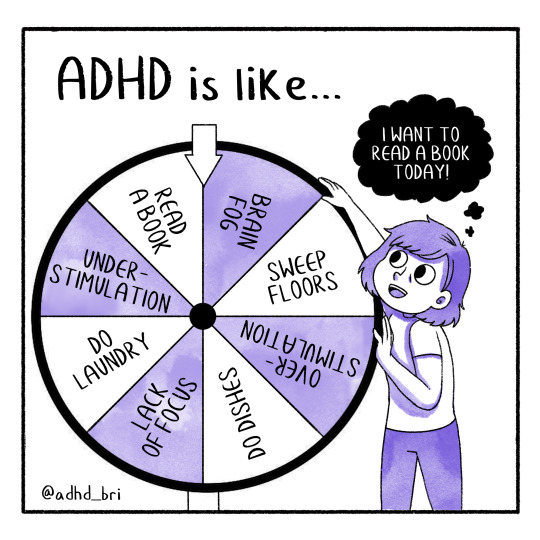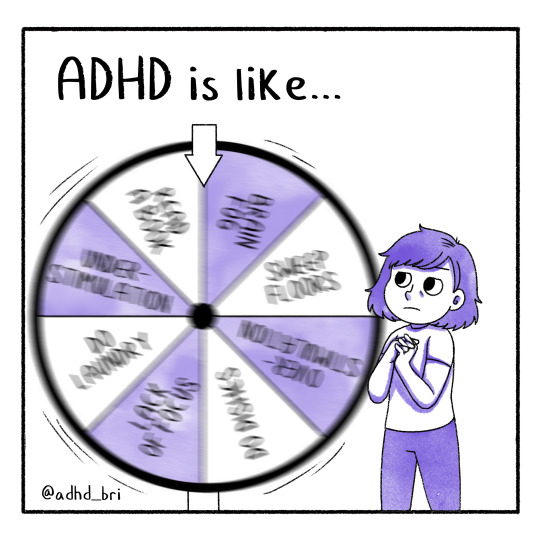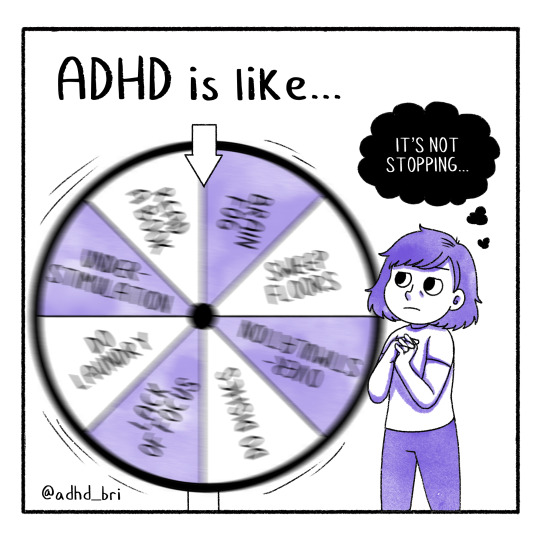Text

Light it up, Blue! happy autism acceptance month, don’t support autism speaks!
38K notes
·
View notes
Text
Nobody:
Absolutely no one:
My entire nervous system:

75 notes
·
View notes
Text
One of the most life-changing things I ever learned came from Mythbusters, where they tested and proved (with cognitive testing puzzles and reaction time tests) that lying down and resting with the intention to sleep STILL provided significant mental benefits over just staying awake, even if a person couldn’t fall asleep in the amount of time they had.
It helps me to actually sleep to know that just lying down with my eyes closed is still doing me some good, and helps me to not freak out/beat myself up when I stay up later than intended. Any amount of rest is better than no rest!
So if you didn’t know that…now you do
202K notes
·
View notes
Text
"I might be disabled, but at least I'm not that kind of disabled" is an ugly sentiment that we as a community need to lose asap.
I got told today by a disabled person who doesn't need carers that my life is "depressing" because I need help to use the toilet. It's not the first time I've heard something like that from someone with fewer care needs. And people are way too comfortable saying shit like "I may be unable to walk/autistic/ neurodivergent but at least I'm not [slur for intellectually disabled]"
It needs to stop
3K notes
·
View notes
Text
Applying for jobs is a hell designed specifically to torment autistic people. Here is a well-paying task which you know in your heart and soul if they just gave you a desk and left you alone and allowed you to do it you would sit there and be more focused and enthusiastic and excellent at it than anyone else in the building. However, before they allow you to perform the task, you must pass through 3-4 opaque social crucibles where you must wear uncomfortable clothes and make eye contact while everyone expects you to lie, but not too much (no one is ever clear exactly how much lying is expected, “over” honesty is however penalized). You are being judged almost entirely on how well you understand these very specific and unclear rules that no one has explained. None of this has anything to do with your ability to perform the desired task.
115K notes
·
View notes
Text
You should not have to prove how badly you’re doing to receive empathy, compassion, and care. You deserve to be heard, even when you don’t appear to be falling apart.
12K notes
·
View notes
Text
mutual aid info lists for western ky affected by tornadoes
queer kentucky
hood to the holler
kentuckians for the commonwealth
bowling green micro pantry is accepting donations via venmo and cashapp @bgmicropantry
4K notes
·
View notes
Text
boy my neuro sure is diverging today
28K notes
·
View notes
Text
Please stop trigger tagging with #epilepsy tw/cw/warning/etc.
I need every single person to understand how horrible tumblr’s tagging system is
I go into the tag for epilepsy and its all flashing lights. We can’t use our own tag because people without epilepsy fill it up with improper warnings.
Use ‘flashing’ in place of ‘epilepsy’ in your tags. You aren’t warning people of epileptics, you’re warning us of flashing lights. Please please tag properly. Epileptics say this endlessly and constantly and it’s ignored. You are risking lives by doing this.
Here’s proof of what I mean:




THIS POST IS 100% OKAY TO REBLOG, I ENCOURAGE PEOPLE WITHOUT EPILEPSY TO ESPECIALLY DO SO!
97K notes
·
View notes
Text
I don't know who needs to hear this, but if the phrase "self care" doesn't resonate with you, try calling it "system maintenance" and see if that clicks.
225K notes
·
View notes
Text
Tourette’s culture is having the typical ‘’Wow!’’ vocal tic.
#wow you got me#tourette#tourette syndrome#actuallytourettic#ticpunk#tourette's#ts#tics#tic disorder#neurodivergent#neurodiversity#disability
43 notes
·
View notes
Note
Hi! This isn't related to repairing clothes but rather the concept of 'slow fashion' and reduce/reuse as a whole.
I'm in need of some more clothes after gaining some weight (note: not plus-sized, just moved from Small to Medium, so it shouldn't be hard to find the right size) and I'd like to buy secondhand for sustainability reasons. The issue is, I have autism and I'm very sensitive to clothing textures - I know I prefer cotton over synthetics, but the individual feel of a cotton shirt can range from great to unbearable.
This is an issue because most thrift stores around me have closed their changing rooms/are not allowing customers to try on clothes beforehand, for sanitary reasons in the pandemic. (I'm not sure about the big chains like Goodwill and Salvation Army, because I'd rather not support them for ethical reasons.) Not to mention that buying secondhand clothes online (from sites like eBay or Mercari) might offer a greater selection but obviously can't try those on beforehand.
So my question is, is there a way to judge how a shirt might feel texture/fit-wise without needing to actually try it out?
Thanks in advance for any tips, I love your blog and all the help you provide :)
I'm autistic too, so I completely understand.
Shopping for sensory-friendly items:
Every person with sensory sensitivities is different, so I can't just tell you what to look for. A garment I find comfortable might be a sensory nightmare for you, and vice versa. What I can do is tell you how to figure out what to look for yourself.
What to look out for:
Go to your wardrobe, pull out your favourite items, and check their labels (if you've left them in). Note down two things: the brands that produced these items, and the materials they're made of.
Once you're done, take a look at the items themselves. What characteristics make them sensory-friendly? What characteristics do you dislike? Do they have elements you like to stim with?
Look at your list. Is there anything that pops up multiple times, be it a fabric, brand, or characteristic? Whatever it is, that's part of what makes that item sensory-friendly to you.
Look for items that check these boxes when shopping. Don't be afraid to look at the labels inside of second-hand clothes if you're in a physical thrift store (unless local Covid regulations say otherwise), and use the items on your list as search keywords when thrifting online. Most second-hand shopping apps have a search system that allows you to look for specific brands/sizes/materials/... If you don't know how to use these, look up a tutorial (like this Depop tutorial by Leena Norms, for example).
Once you've gotten a new item, take good care of it. Washing a garment the wrong way can alter its texture, and so can mending it.
If you still end up with a garment that doesn't feel right, check if you can make any alterations to improve it. Cut out the labels, replace itchy parts with a different fabric, wear it over a long-sleeved undershirt, remove a neckline or cuff if it makes you feel constricted,... It's your item and you can do with it whatever you want.
If all fails, you can always try reselling it and using that money to buy something else.
An example:
I know that items made of materials such as flannel, bamboo or chambray will always be sensory-friendly to me because those tend to pop up a lot in my wardrobe. Basic cotton is hit-or-miss for me depending on the way it's produced and washed, and sheep's wool is a no-go because I find it itchy. When I shop second-hand, I always keep an eye out for items made of flannel, bamboo or chambray, and when I need a warm knitted item I look for alpaca rather than sheep's wool because it's an itch-free alternative.
Going through my wardrobe, I realised there's a few brands that I wear more than others because they're always made of materials I personally find sensory-friendly, and they match my aesthetic style (Axes Femme, for example). When I need something new, I look for these specific brands on second-hand apps.
As for characteristics, I know I like loose or shirred items better than fitted items, and I hate turtlenecks because I can't stand how they cling to my throat. When shopping, I ignore anything with a turtleneck and look for loose items rather than fitted ones.
Conclusion:
It's possible to shop for sensory-friendly items without touching them, but it takes practice.
Once you've got some experience with handling fabric, you can sort of guess what an item will feel like just by looking at it. Sewing and altering clothes is a great way to develop this skill. You'll still occasionally bump into unpleasant surprises as you can never predict a 100% how something will feel, but this will happen less with time.
You can minimise the risks by getting to know both yourself and how clothes are made. I frequently thrift online and rarely run into issues any more because I know what to look for.
200 notes
·
View notes
Photo


AND a race one since the most affected regions will be Africa, Asia and Oceania
254K notes
·
View notes





